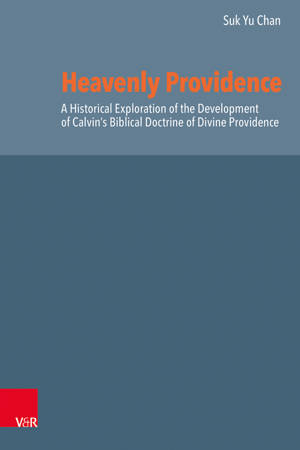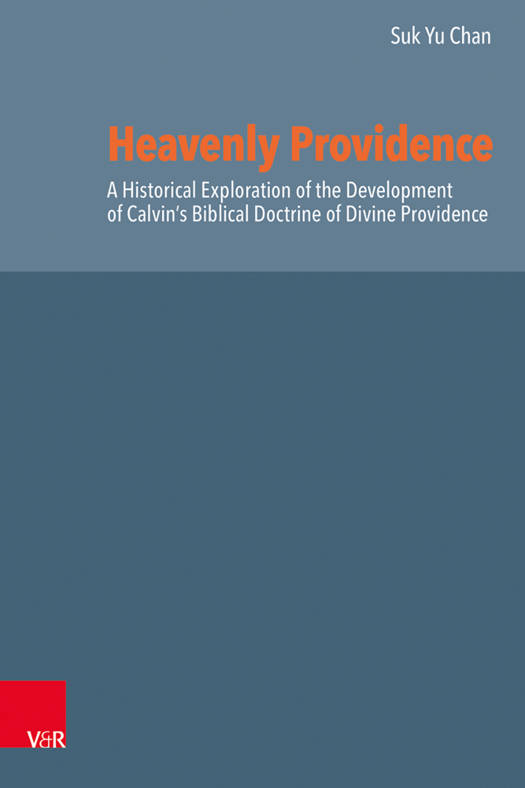
- Afhalen na 1 uur in een winkel met voorraad
- Gratis thuislevering in België vanaf € 30
- Ruim aanbod met 7 miljoen producten
- Afhalen na 1 uur in een winkel met voorraad
- Gratis thuislevering in België vanaf € 30
- Ruim aanbod met 7 miljoen producten
Zoeken
Heavenly Providence
A Historical Exploration of the Development of Calvin's Biblical Doctrine of Divine Providence
Suk Yu Chan
€ 128,45
+ 256 punten
Omschrijving
Suk Yu Chan provides a revisit of John Calvin's interpretation of the doctrine of divine providence and builds upon a vast repository of quality research conducted by previous Reformation scholars. The author adopts a historical approach to explore Calvin's works from 1534-1559, and argues that from 1534-1541, Calvin used the image of the fountain to portray God as the source of everything, who has power to preserve and give life to all creatures on earth. Between the Latin edition of the Institutes in 1539 and the French translation of that work in 1541, Calvin was indecisive about the definition of special providence, articulating a fitful relationship between providence and soteriology in these two texts. In 1552, Calvin gradually ceased using the image of the fountain to portray God as the source of everything, and he also delivered three definitions of divine providence: general providence, special providence, and the very presence of God. Based on the theological understanding of divine providence which he had developed from 1534-1552, Calvin presented his exegesis on the Book of Job and the Book of Psalms through his sermons and commentaries. Furthermore, Calvin also discussed the importance of the human role in God's providence. While Calvin's theological understanding of God's providence was inherited by his successor, Theodore Beza, Beza applied it differently in his exegesis on the Book of Job. From 1534-1559, Calvin formulated his biblical doctrine of divine providence, articulating that divine providence is heavenly providence which is comprised of eternal predestination and divine preservation.
Specificaties
Betrokkenen
- Auteur(s):
- Uitgeverij:
Inhoud
- Aantal bladzijden:
- 209
- Taal:
- Engels
- Reeks:
- Reeksnummer:
- nr. 75
Eigenschappen
- Productcode (EAN):
- 9783525560716
- Verschijningsdatum:
- 8/08/2022
- Uitvoering:
- Hardcover
- Formaat:
- Genaaid
- Afmetingen:
- 155 mm x 231 mm
- Gewicht:
- 2399 g

Alleen bij Standaard Boekhandel
+ 256 punten op je klantenkaart van Standaard Boekhandel
Beoordelingen
We publiceren alleen reviews die voldoen aan de voorwaarden voor reviews. Bekijk onze voorwaarden voor reviews.











